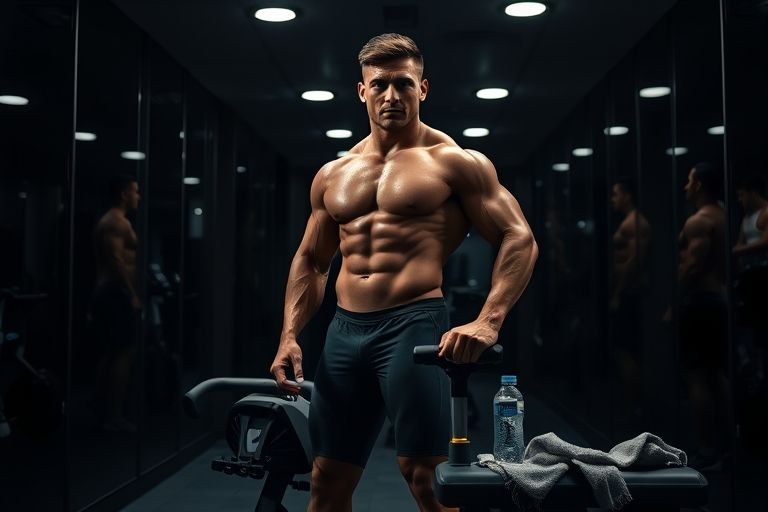

Bodybuilding is a discipline that demands dedication, perseverance, and a deep understanding of the human body. One of the most challenging aspects for bodybuilders is finding the balance between losing fat and maintaining muscle mass. It requires a strategic approach that combines nutrition, training, and mindset. In this article, we will explore the proven methods that bodybuilders use to shed unwanted body fat while preserving their hard-earned muscle.
Before diving into the strategies, it's important to grasp the scientific principles behind fat loss and muscle maintenance. The body stores excess energy in the form of fat, which is utilized when there is a calorie deficit. On the other hand, muscle is built and maintained through resistance training and proper nutrition.
When bodybuilders aim to lose fat, they must create a calorie deficit by consuming fewer calories than their body needs. However, this deficit needs to be carefully managed to prevent muscle loss. Inadequate calorie intake can lead to the breakdown of muscle tissue for energy, which is counterproductive for bodybuilders.

Nutrition plays a crucial role in the journey of bodybuilders striving to lose fat while maintaining muscle. Here are some key dietary strategies:
1. Calorie Control
To achieve fat loss, bodybuilders typically aim for a moderate calorie deficit. This deficit should be sustainable and allow for gradual weight loss. It is recommended to start with a deficit of around 500 calories per day, which can be adjusted based on individual progress.
Protein is the building block of muscle, and it's essential to consume enough protein to support muscle growth and repair. Bodybuilders often consume 1.2-2 grams of protein per kilogram of body weight per day, spread across multiple meals.

While protein is crucial, it's important to maintain a balanced macronutrient ratio. Carbohydrates provide energy for workouts, while fats support hormonal functions. A balanced intake of all three macronutrients is essential for optimal performance and body composition.
Exercise is a fundamental pillar of bodybuilding, and it plays a significant role in both fat loss and muscle maintenance. Here are some effective training strategies:
Weightlifting or resistance training is crucial for preserving muscle mass during a fat loss phase. By stimulating the muscles through resistance, bodybuilders can signal the body to maintain muscle tissue even in a calorie deficit.

HIIT is a popular cardio method that can maximize fat burning while minimizing muscle loss. It involves alternating between intense bursts of exercise and short recovery periods. HIIT sessions are typically shorter but more intense compared to steady-state cardio.
Bodybuilders often utilize active recovery techniques such as light cardio or mobility exercises on rest days. This helps improve blood flow, aids in recovery, and promotes fat loss without compromising muscle mass.
Bodybuilding is not just about physical training and nutrition; it also requires the right mindset and lifestyle choices. Here are some important factors to consider:
Consistency is key in achieving long-term fat loss and muscle maintenance. Bodybuilders adhere to their training and nutrition plans consistently, even during challenging times. This dedication allows them to make steady progress towards their goals.
Adequate sleep and recovery are critical for optimizing fat loss and muscle maintenance. During sleep, the body repairs and rebuilds muscle tissue. Bodybuilders strive to get 7-9 hours of quality sleep each night to support their goals.

Chronic stress can hinder fat loss and muscle maintenance. Bodybuilders employ various stress management techniques such as meditation, deep breathing exercises, and engaging in hobbies to keep stress levels in check.
Bodybuilders have mastered the art of losing fat while maintaining muscle mass through a combination of nutrition, training, mindset, and lifestyle choices. By understanding the science behind fat loss and muscle maintenance, implementing effective strategies, and staying consistent, bodybuilders achieve remarkable transformations. If you're looking to embark on a similar journey, remember that patience, dedication, and a well-rounded approach are key to success.